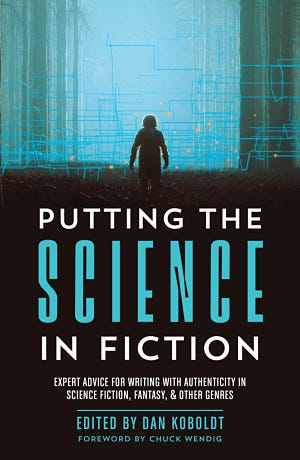Putting the Science in Science Fiction. A Q&A with Genetics Researcher & Author, Dan Koboldt
Putting the Science in Fiction. A Q&A with Genetics Researcher & Author, Dan Koboldt
New book features experts in multiple scientific disciplines helping you become a better science fiction writer.


Featuring interviews with authors, academics and creators; and a collection of news items from the fields of technology, science, medicine and more, The Adjacent Possible project — both this Medium publication and the
- Entertain and educate fans of hard(ish) science fiction.
- Provide inspiration, ideas and source material for aspiring writers
Today’s Q&A participant is Dan Koboldt, a research scientist in the field of human genetics and genomics, and co-author of over 70 publications
This week saw the publication of Putting the Science in Fiction which collects articles from Science in Sci-fi, Fact in Fantasy, Dan Koboldt’s popular blog series for authors and fans of speculative fiction. Each article discusses an element of sci-fi or fantasy with an expert in that field. Scientists, engineers, medical professionals, and others share their insights in order to debunk the myths, correct the misconceptions, and offer advice on getting the details right.
Dan’s book is an ideal resource for The Adjacent Possible, and absolutely essential for writers at any experience level. I strongly recommend checking it out, it’s very accessible and is a fun read. So I was excited to have the opportunity to connect with Dan, and ask him some questions…
The Adjacent Possible: First, when did you start writing fiction? Had you already kicked off your scientific professional career? And how does your career inform the type of fiction writing you do?
Dan Koboldt: I’ve been reading SFF since I was a kid, and always fancied the idea of writing it myself. However, I didn’t really try until about ten years ago, when I took a night class on fiction writing. By that point I’d worked as a scientist for five years and had several publications on my CV. So I came in thinking I’d be pretty good at it. Man, was I wrong. It took me seven years to break in.
